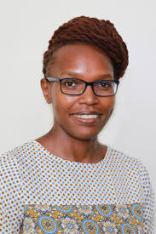Call for Papers: "African languages and social change: Politics, activism, and justice"
The "Language in Africa" (LIA) special interest group of the British Association of Applied Linguistics (BAAL) is holding its 2021 annual conference in collaboration with the Leeds University Centre for African Studies, on 1 to 14 June 2021.
The theme of the conference is ‘African languages and social change: Politics, activism, and justice’. The keynote lecture will be delivered by Professor Grace Musila of the University of Witswatersrand, Johannesburg, South Africa.
Call for papers
Abstracts of up to 250 words for 20 minute presentations are now invited, to be sent to Dr Seraphin Kamdem, Convenor, at: jk58@soas.ac.uk and cc Dr Colin Reilly colin.reilly@essex.ac.uk no later than 16 April 2021. We also invite proposals for posters. Participants are to deliver their papers via Zoom as outlined in the conference format.
African languages and social change: Politics, activism, and justice
At a variety of levels, questions of language intersect with political issues around social change and social activism (including as part of the struggle for gender equality, climate justice, and minority rights). Language is part of how individuals organise themselves during action; how we understand and discuss key issues; and how struggles for justice can be effectively communicated at local, regional, national, and international levels.
The 2021 LIA SIG Annual Conference aims to bring together researchers to present and discuss current research on the role of language and languages – at the levels of policy, planning, education, social practice and literature – in contributing towards social change within Africa and the African diaspora.
Language can be used as a tool of oppression, to marginalise communities by repressing their languages. It can also be a powerful tool for liberation and positive change, to promote diversity and inclusion, to allow individuals and groups to be represented and share their experiences and voices. This conference will provide an opportunity to explore what determines whether language is used as a tool for oppression or liberation: concerns might include who is using language; how they are using it; and what language(s) are being used?
One exemplary area of discussion focusses on linguistic human rights. Ensuring that individuals and communities are given linguistic rights allows them to access and effectively engage with health services, legal services, education, economic opportunities, community and political activities. Denying these linguistic rights is discriminatory, and is fundamentally a human rights issue. In complex, multilingual contexts, how can individuals, groups and institutions secure and protect linguistic rights?
The primary objective of the meeting is to explore what current research has to say on how languages in Africa are entangled in the struggle between social change and oppression.
Sub-Themes
Topics for papers could consider (among other things)
- Language and human rights
- Language and gender equality
- Language and the UN Sustainable Development Goals
- Language activism and revitalisation
- Language policy within institutions
- Language and political rhetoric
- Language and climate justice
- Language rights and refugees
- Language and cultural diversity
- Language and socio-cultural integration in the diaspor
- Language and decolonisation
Format
The conference will run over a period of two weeks. All contributors will be invited to submit a pre-recorded video presentation of between 10-20 minutes. These will be made available on our website on the 1st of June. From the week beginning the 7th June we will have interactive panel discussion sessions via Zoom. Contributors to the conference will be grouped into themed panels for these discussions. All contributors will be invited to take part in at least one panel session. However, contributors do not need to take part in a panel discussion to participate in the conference and to have their video presentation hosted on our website as part of the conference.
Conference participants will be encouraged to view the video presentations prior to attending the interactive sessions to allow time for discussions and Q&A.
We understand that the ongoing COVID-19 pandemic has disrupted research for a number of colleagues. As such, we encourage a wide range of presentation topics which can focus on: discussion of empirical data; theoretical innovations; literature reviews; opinion pieces. We especially encourage submissions from students and early career researchers.
Keynote

Grace A. Musila is Associate Professor in the African Literature Department at the University of the Witwatersrand, Johannesburg. She holds a PhD in African Literature from the same University. Her teaching and research centres on Eastern and Southern African literatures and popular cultures; and she has published in these areas. She is the editor of Wangari Maathai’s Registers of Freedom ( HSRC Press, 2020), author of A Death Retold in Truth and Rumour: Kenya, Britain and the Julie Ward Murder (Boydell & Brewer, 2015); and co-editor of Rethinking Eastern African Intellectual Landscapes (Africa World Press, 2012; with James Ogude and Dina Ligaga). She is favourably disposed to ideas, and the freedoms ideas afford or impede especially in women’s lives.
Registration
The conference will be free and registration will open in early May 2021. Enquiries to: Colin Reily colin.reilly@essex.ac.uk
